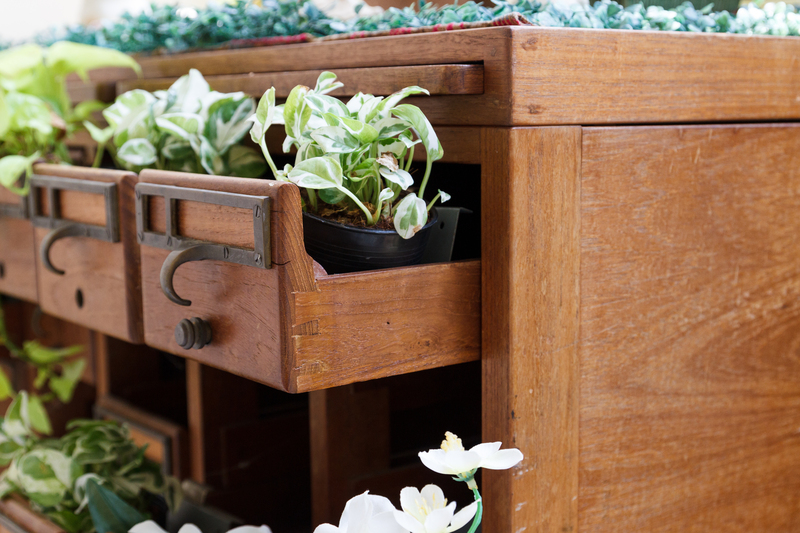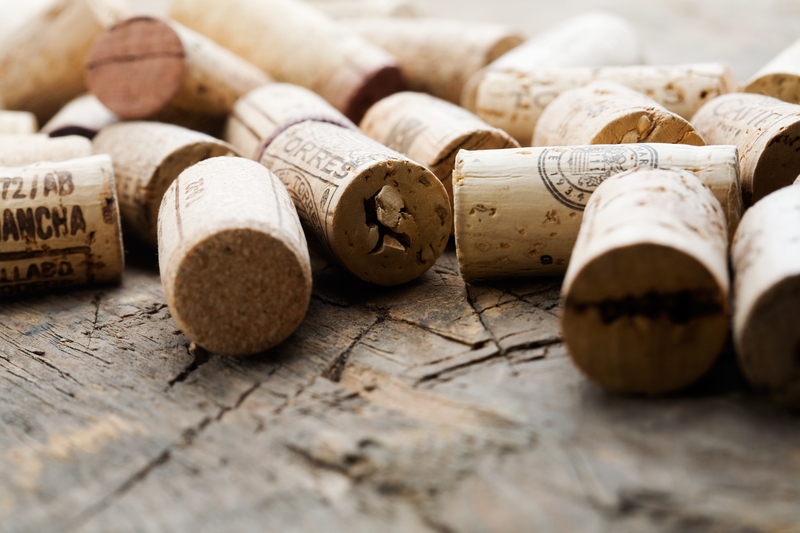Can You Recycle Your Old Pots and Pans and How?
Ever found yourself staring at your well-loved frying pans or battered saucepots, wondering what to do with them? If so, you're not alone! Many people are unsure whether old cookware can be eco-consciously disposed of or recycled. Can you recycle your old pots and pans? This comprehensive article explores the answers, offers actionable steps, and presents optimal solutions for tackling unwanted cookware sustainably.
Understanding Cookware Materials: What Are Pots and Pans Made Of?
Before diving into recycling, it's crucial to identify what materials your cookware is made from. The most common materials for pots and pans include:
- Stainless Steel
- Aluminum
- Copper
- Cast Iron
- Non-Stick Coated (Teflon, Ceramic, etc.)
- Glass (often lids or specialty cookware)
These materials impact your options for recycling old pots and pans, so it's important to check construction before making any decisions.

Can You Recycle Old Pots and Pans?
Yes, you can recycle many old pots and pans, but with a few important caveats. The process depends on:
- The type of material (metal vs. non-metal).
- The presence of non-stick coatings or plastic handles.
- Local recycling programs and their requirements.
Household recycling bins typically do not accept cookware due to size, shape, and material complexity. However, specialized recycling options are available for most types of cookware, although the method will vary.
Different Ways to Recycle Old Pots and Pans
1. Scrap Metal Yards: The Most Common Option
Most metal pots and pans - whether aluminum, stainless steel, or cast iron - are best recycled by taking them to a local scrap metal yard. These facilities accept various forms of cookware, even if it has seen better days. Here's how to proceed:
- Check local scrap metal yards: Use online resources or maps to find a facility near you.
- Prepare your items: Remove any non-metal parts (handles, knobs, plastic lids, or glass) to ensure the pan is pure metal. Some scrap yards may accept coated or mixed items, but it's best to call ahead.
- Sort by metal type: If you have both aluminum and stainless steel pans, separate them for better recycling value.
- Drop-off and recycling: Deliver your old pans, where they'll be weighed and processed for recycling.
2. Municipal Recycling Centers: Check Local Rules
Some cities and municipalities operate special recycling centers for household scrap metal. You can:
- Contact your local waste authority: Inquire about specific rules for pots and pans recycling.
- Attend recycling collection events: Many towns host periodic metal recycling drives.
- Follow preparation guidelines: Remove any food debris, wash the cookware, and detach attachments if requested.
3. Retailer Take-Back Programs and Donations
Some retailers or cookware brands may operate take-back programs, especially when you're buying new pots and pans. Check with major retailers or the manufacturer for any trade-in or recycling incentives.
Donation is another green option if your cookware is still usable. Charities, shelters, thrift stores, or community kitchens often welcome gently used pots and pans. Remember to clean them thoroughly beforehand!
4. Mail-In Recycling Programs
Several eco-focused companies provide mail-in recycling services for kitchenware. While there may be a fee, these services often handle complex materials, including non-stick coatings or composite cookware:
- TerraCycle: Accepts certain pots, pans, and even non-stick cookware.
- Check other specialist services online by searching for "mail-in cookware recycling program."
5. Upcycling and Creative Reuse
Repurposing is both trendy and practical! Old frying pans and pots can enjoy a second life as:
- Plant pots for small herbs or flowers
- Garden organizers for tools or seeds
- Wall art or decorative objects (painted or repurposed)
- Bird feeders or watering dishes
- Outdoor ashtrays, candle holders, or craft projects
Not only does this keep old cookware out of landfills, but it adds rustic charm to your home or garden!
Special Case: Recycling Non-Stick, Teflon, and Ceramic-Coated Cookware
Non-stick cookware presents additional recycling challenges. The Teflon or ceramic coating cannot generally be processed the same way as plain metal. Here's what you need to know:
- Some scrap yards accept non-stick pans, but may require you to remove as much non-metal component as possible.
- Mail-in programs like TerraCycle or specialized local services can handle coated cookware.
- NEVER put non-stick pans in household recycling bins, as coatings can contaminate recycling streams.
- If coatings are damaged, do not donate for cooking use, but upcycling as decor is fine!
Why Old Pots and Pans Shouldn't Go in Household Recycling Bins
Most curbside recycling programs prohibit pots and pans for several reasons:
- Equipment damage: Large, heavy pans can jam or harm processing machinery.
- Material complexity: Handles, lids, and coatings can render them unrecyclable in basic municipal streams.
- Contamination risk: Non-stick surface and food residue can contaminate regular recycling loads.
This is why recycling programs for old cookware must be specialized.
How to Prepare Old Pots and Pans for Recycling
Proper preparation ensures your cookware can be successfully recycled:
- Clean thoroughly: Remove all food and grease.
- Remove plastic, rubber, or wooden handles and knobs, if possible.
- Separate lids, especially if they are glass or plastic.
- Label materials, if dropping off at a yard with multiple options.
- Stack and transport safely to avoid injuries.
Well-prepped items have a much better chance of being accepted and processed.
What About Electric or Specialty Cookware?
Items like electric skillets, slow cookers, or multi-cookers must be treated as small appliances. These often contain metal, plastic, and electronics. For these:
- Check e-waste collection events or programs.
- Many cities offer special drop-off sites for electronic appliances.
- Remove batteries and cords if possible, and follow local guidelines for safe disposal.
Landfill as a Last Resort
If all else fails and your cookware is truly beyond rescue, landfill disposal may be your only option. But this should be a last resort, as metals last for centuries in landfill sites and may leach toxins.
Environmental Benefits of Recycling Old Cookware
- Conserves resources: Metals like aluminum and steel can be recycled endlessly, saving enormous amounts of energy and raw materials.
- Reduces landfill waste: Pot and pan disposal is minimized when recycling or reusing.
- Reduces pollution: Less mining and resource extraction means fewer pollutants in the environment.
- Promotes a circular economy: Giving new life to metal products supports sustainable production cycles.

Frequently Asked Questions About Pot and Pan Recycling
Can You Put Old Pots and Pans in the Recycle Bin?
No! Most curbside recycling programs do not accept cookware. The best route is to seek out a scrap metal yard, recycling center, or specialty recycling program.
What If Pans Are Rusty or Damaged?
That's fine for scrap metal yards. Rust or wear doesn't prevent metal recycling. However, heavily damaged non-stick surfaces should not be donated for cooking.
Can I Earn Money from Recycling My Old Cookware?
Usually, scrap metal yards pay by weight. While a single pan may not net much, larger hauls can earn a bit of cash (especially if you combine with other metal recyclables like old appliances, bikes, or tools).
Are Cast Iron Pans Recyclable?
Yes, cast iron is 100% recyclable. The heavy weight makes it valuable for scrap metal recycling!
Should I Remove the Handles Before Recycling?
Yes, wherever possible. Plastic, wood, or rubber handles should be detached and disposed of according to local waste rules. Pure metal is easiest to recycle.
Conclusion: Make Your Old Pots and Pans Part of the Sustainability Cycle
Recycling old pots and pans is a vital step towards reducing household waste and supporting a healthy planet. Whether you find a local scrap metal yard, use a mail-in recycling program, or simply upcycle that vintage saucepan into a plant pot, the environment wins when you choose sustainable disposal. By following the steps in this guide, you ensure your unwanted cookware is responsibly handled - minimizing waste and maximizing resource use.
So next time you retire your battered cookware, remember: with a little effort, recycling your old pots and pans is absolutely possible and positively impactful!